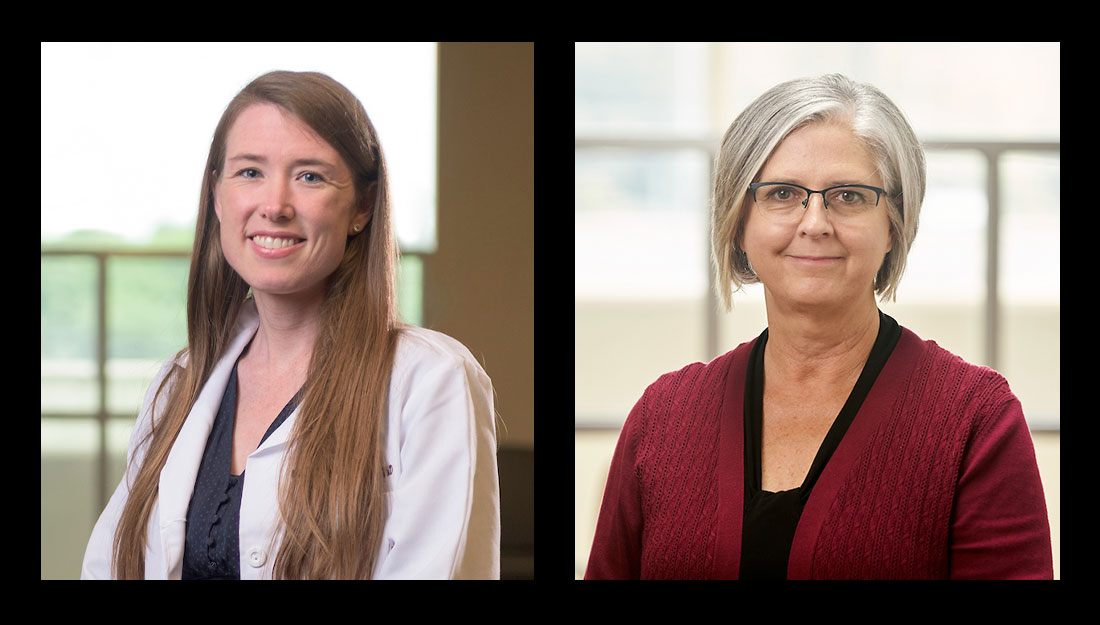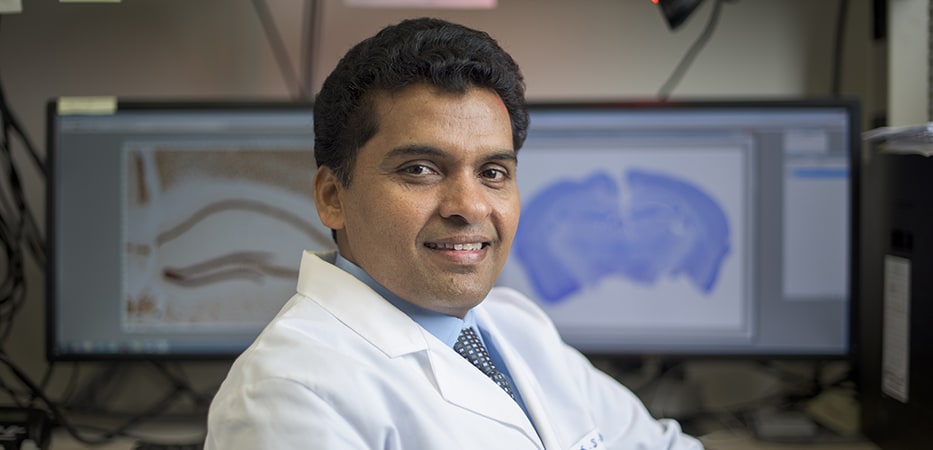Clinicians Meredith Williamson, Susan Roberman selected for prestigious national Mental and Behavioral Health Training Award

Meredith Williamson, PhD, and Susan Roberman, MD, were selected by the Association of American Medical Colleges (AAMC) to receive the Mental and Behavioral Health Training Award for the Integrated Behavioral Health Program at the Texas A&M University School of Medicine. Williamson, a licensed clinical psychologist and associate professor, and Roberman, a family medicine physician and clinical assistant professor, both work in the Department of Primary Care and Rural Medicine. Together, they have led efforts to advance the practices of integrated behavioral health and to enhance accessible whole-person care for all.
The AAMC selected Williamson and Roberman for the honor of the inaugural Mental and Behavioral Health Training Award to recognize their exemplary efforts, innovation and excellence in the Integrated Behavioral Health Program’s approach to increase Texan’s access to mental health care. Their program addresses a shortage of mental and behavioral health services within the state and uses innovative, collaborative, team-based training to address these shortages.
Texas currently ranks last in access to mental health care and is 46th out of 51 U.S. states, including the District of Columbia, for overall adult access to behavior and mental health services. In the Brazos Valley, the Integrated Behavioral Health Program is the only program that provides training to behavioral health and medical professionals with a focus on treating patients across their lifespan.
The program trains its members under the supervision of an interdisciplinary team to share knowledge and expertise across disciplines in order to provide holistic patient care. Members of the program include family medicine resident physicians, psychiatry resident physicians, medical students, social work master’s level trainees, and psychology doctoral level trainees. The team has made great strides in increasing the quality of clinical training, care and access to these much needed mental and behavioral health resources in underserved and rural communities by increasing the availability of both in-person and telehealth services.
“Our primary goals for the program are to increase exposure, education and training to integrated behavioral health within primary care and decrease stigmatization around seeking mental health services,” Williamson said. “The program builds trust and communication among health care providers, trainees and patients. Integrated behavioral health appointments are medical encounters billed by the physician, which increases access to behavioral health care to patients without behavioral health insurance coverage, unlike traditional services.”
Earlier this year the program was awarded a $2.4 million grant from the Health Resources and Services Administration (HRSA) to further develop innovative training modalities for the School of Medicine’s family medicine residents and faculty. Williamson and Roberman plan to expand their program in the near future by seeking additional integrated training opportunities with pharmacy residents and other health care disciplines. Additionally, the program will assess differences in telehealth and in-person care to increase effective patient health care and training.
Selection for the inaugural award includes $25,000 to each awardee, an invitation to be featured in the AAMC webinar series, “The Mental Health Access Crisis: How Academic Medical Centers Can Use Integrated Behavioral Health (IBH) Models as Part of the Solutions,” on May 11 at 4 p.m. ET, and an invitation to lead a session at the 2023 AAMC annual meeting to highlight the Integrated Behavioral Health Program.
Media contact: media@tamu.edu


